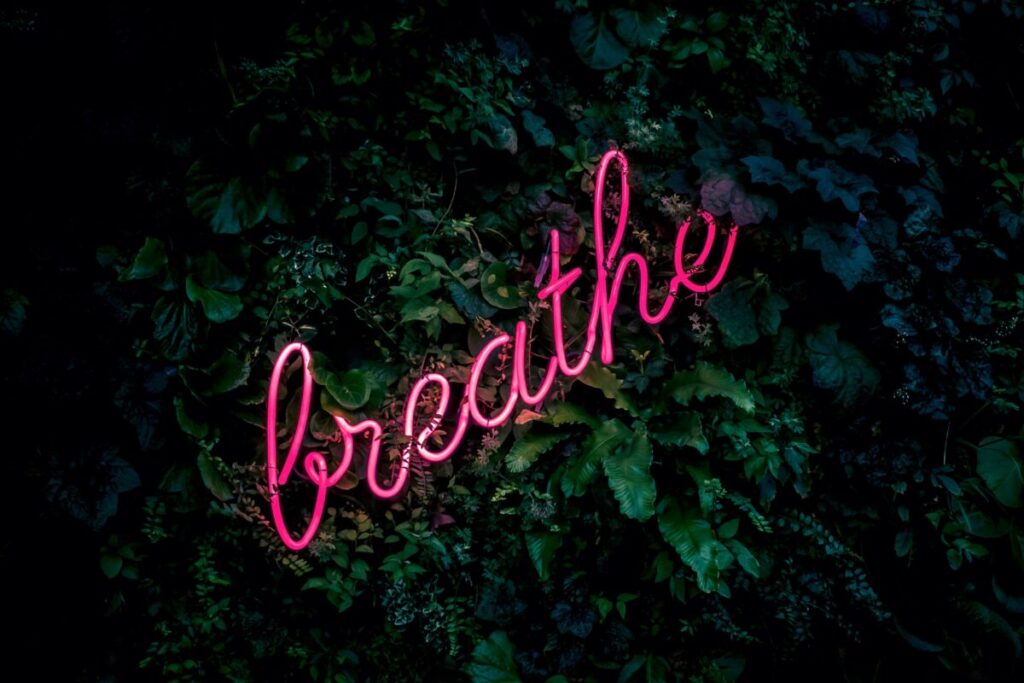Self-love & Managing Stress During the Pandemic
Today I sat down to write this monthly column about self-love, intending to write about ways to appreciate and love your body through all the changes it goes through. But as I sat here at my computer I found myself just staring at a blank page, my mind racing with the coronavirus pandemic and all that is currently going on in the world. It is hard to think about loving our bodies when we are also stressed about becoming ill, losing jobs, or kids who are home from school for weeks or months. It is hard to worry about wrinkles or drooping breasts or hair in new places when – for many of us – we are in survival mode, just trying to make out what is going on and what it means for our lives.
That survival mode, though, is actually really hard on our bodies. Our bodies were meant to experience stress in short bursts when the fight/flight/freeze response is instigated. Think of a deer you encounter in the roadway while driving, for example. It sees your car coming, dashes to the other side of the road where it will be safe, and within minutes is back to grazing peacefully.
While sometimes stress works like that for us – a car cuts us off on the freeway, something startles us in our house – issues like the pandemic global health crisis we are facing impact us much differently.
Extended stress can cause a myriad of symptoms in the body. According to the American Psychological Association, stress can affect just about all systems of the body causing symptoms ranging from bloating and upset stomach, to trouble concentrating, to lowered immune responses and cardiac issues.
Thus, while thinking of ways to care for and love your body while also juggling finances and childcare and health worries may not seem important, it actually is. Here are three simple ways you can take care of YOU while also dealing with the coronavirus pandemic and how it is effecting your life:

Breathe.
Yes, it sounds cliche, but it is scientifically proven to actually help. Diaphragmatic breathing – also known as belly breathing – is shown to lower your heart rate and your blood pressure as well as reducing stress. You can find step by step instructions on belly breathing from Harvard here. Try doing a few minutes of belly breathing each morning before you get up to start your day, and if you notice your anxiety rising through the day, take a few deep breaths.

Get Outside.
To the best of your ability, get outside, even if it is just for a few minutes. Personally, I’ve been taking my breakfast and mug of decaf out on the back porch each morning to get some fresh air and listen to the birds singing. According to the University of Minnesota, spending time outside in nature can reduce your heart rate, blood pressure, and the production of stress hormones. So whether it is taking the dog for a run, rolling around the block, or simply sitting in your backyard watching the neighborhood squirrels, try to spend at least a few minutes outside each day.

Rest.
When I get stressed out or anxious, I automatically switch into ‘go mode’ trying to figure out all the things I can be doing to make the situation better. Unfortunately, in this situation, there isn’t much we can actually do. However, if we are constantly go-go-go-ing, we will wear our bodies down even faster. It is imperative then, that even if it goes against our natural instinct (all those stress hormones are telling us to fight or to flee, right?), we rest. One of the most important lessons I’ve learned (and am still learning) as a chronically ill person is the importance of rest. In a society that is focused on productivity, this can be hard to do. But especially in such stressful times, I encourage you to take some time to yourself to just relax. Read a chapter of a favorite book. Find a few moments in the morning to just stare out the window. Print off a coloring sheet and break out the markers. Binge-watch a show on Netflix (and don’t feel guilty about it!). The work will still be there to do when you’re done, and the stresses of this situation will still be there, but you’ll be able to face them slightly more rejuvenated.
It is so easy to get caught up in the stress of the moment, to get caught up in fears of the future, to get caught up in all the worries and ‘what ifs.’ But it is essential that even now – maybe even more-so now – we take care of ourselves and our bodies. We will get through this.
P.S. – Readers, my inbox is open if you need someone to listen during these times. Feel free to reach out to me at [email protected] I also will be doing weekly FaceBook live sessions Fridays at 2 pm PST over on my Rebel on Page FB page. You can join me there for an inspirational poem, a short writing exercise, and a check-in. Stay as well as possible, and know you’re not alone.





